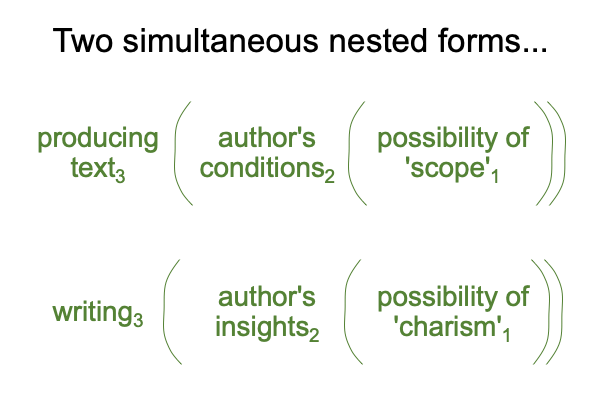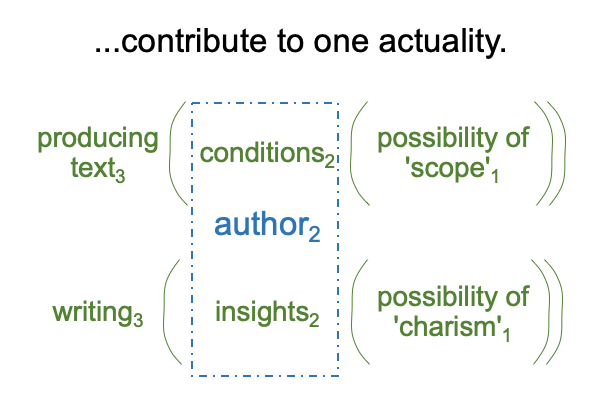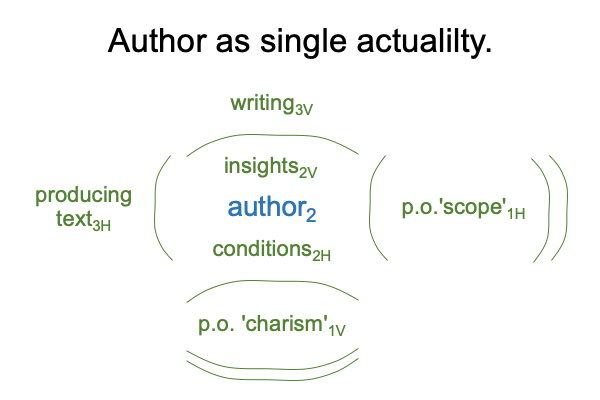0009 Mark Smith concludes the introduction by casting an eye upon the reader. The Christian reader of Genesis 3 wants to plumb the author’s scope1H and charism1V in order to apply lessons to “his” own situation, where “his” indicates “his” and “hers”.
0010 “His”?
Even the awkward attribution smells funny. Presumably, men, like rotten fruit, no longer represent the entire species.
So, we have to clean up the language, don’t we?
0011 What does Genesis 3 really say?
Mark Smith intends to inform the reader. He begins with a retrospective.
0012 John Milton (1608-1674), at the start of the Age of Ideas, composes an epic poem, titled, Paradise Lost. Paradise Lost begins in the middle. Yes, a theodrama precedes Adam’s occupation of paradise. And, Satan is not pleased.
The most recent Catechism of the Catholic Church formulates original sin as the connection between Adam’s transgression and our current misery. Figuratively, we are all Adam’s descendants. Or, is it literally?
0013 These introductory retrospections add a puzzling emptiness.
Maybe, the story of Adam and Eve begins in the middle, but what goes before? The defeat of Satan is not about humans. What would it mean if humans, or generally, our hominin ancestors, live before Adam and Eve, on the open plains and in the gnarled forests that the defeat of Satan leaves open for settlement? It is an odd question…
…further cemented by the formulation that we are all descendants of Adam. How can folk living on the far edges of Eurasia be Adam’s descendants, when Adam lives a generation before the formation of Cain’s city? They cannot be literally descended. After all, the first towns start a little over 6000 years ago.
Better words may be “drawn into” and “entangled”.
We are all drawn into Adam’s transgression.
0014 Indeed, we are entangled. It is like the sticky postmodern situation where the word, “he”, once meant both “he” and “she”, then “she” declares that “he” is presumptive, arrogant, and so on, and demands her own pronoun. And now, everyone wants their own pronouns. For me, it is back to “he”, but now in scare quotes, because there is no way to get disentangled.
0015 What sin has all humanity been drawn into?
What sin entangles us?
Oh, it must be original sin.
0016 According to Mark Smith, the foundational stories in Genesis 3 contain deeply unsettling psychological portraits. The psychology is tied to the drama, just like the pronoun business. The drama contains comedy and tragedy and, most horrifying, catastrophe. Yet, all this is not so bad, because good people appear in every generation, like Abel, who gets murdered, and Enoch, who gets swept up in mysterious circumstances, and Noah, who gets to build an ark because God is about the wipe out the civilization.
Other people, who may not be as good as good can be, are somehow in play, even though they are not upstage. They are the ones who call upon the name of the Lord. They remember. Plus, a good God knows all.
0017 So, I say, “There is more to Genesis 3 than meets the eye.”



